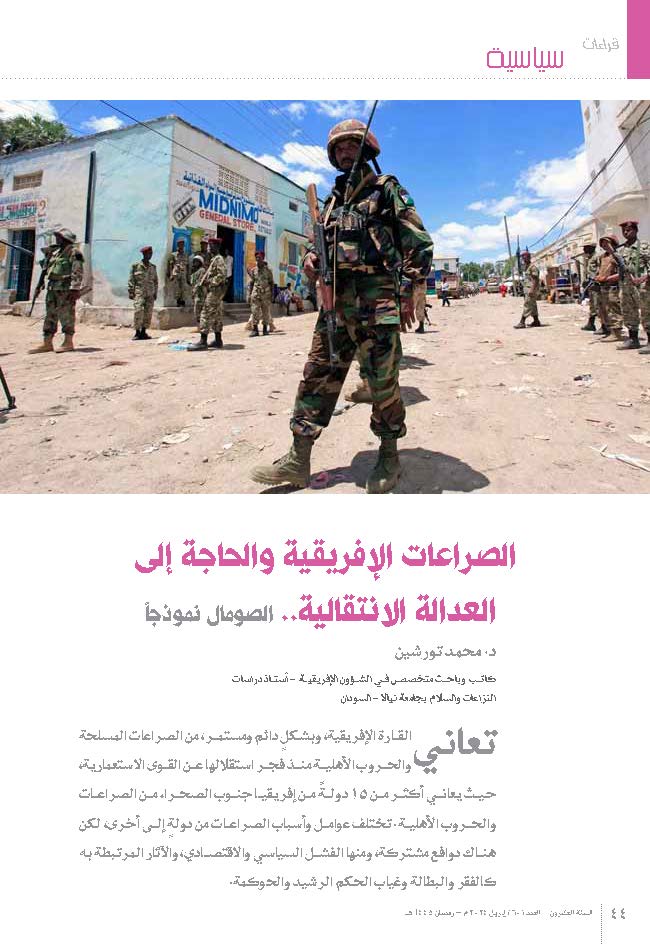Publisher: Qira’at Afriqiyah Magazine
Issue: 60, April 2024
ISSN: 2634-131X
Year : 20
Pages: 44-61
Author: Mohammed Torshin
Download pdf

Abstract:
The African continent has suffered permanently and continuously from armed conflicts and civil wars since the dawn of its independence from colonial powers, as more than 15 countries in sub-Saharan Africa suffer from conflicts and civil wars. The factors and causes of conflicts vary from one country to another, but there are common motives, including political and economic failure and the effects associated with it such as poverty, unemployment, and the absence of good governance. Despite the state of failure prevailing in most sub-Saharan African countries that suffer from the expansion of wars and conflicts, there are some models (South Africa, Rwanda, Ghana) that were able to achieve great success in implementing the transitional justice experience and overcome the challenges that faced several African countries. That emerged from stages characterized by conflicts and armed conflicts that left major political, economic, and social impacts that were reflected in social peace. Transitional justice can be defined as a concept that refers to a set of judicial and non-judicial measures applied by various countries to address the gross human rights violations they inherited. These measures include judicial prosecutions, truth commissions, reparations programs, and various forms of institutional reform. The process of activating transitional justice in African countries has encountered several difficulties, as laws and legislation were among the most important obstacles facing rights activists, mainly, the lack of a constitutional cover to protect them from challenge, the existence of laws that were specifically tailored to avoid accountability and legal accountability, or to manipulate the loopholes in existing legislation. The activation of the transitional justice process also faced a set of obstacles depending on the specificity of each experience. Somalia has witnessed serious human rights violations under the rule of President Siad Barre, and since the collapse of his regime, the country has entered into devastating civil wars in which war crimes and crimes against humanity occurred. After the restoration of the regime during the transitional period, many initiatives were put forward to achieve transitional justice. The return of Sheikh Mahmoud to power once again puts him in front of an investigative challenge related to achieving national reconciliation and completing the issue of transitional justice between the components of society that suffer from tension, tribal tensions, and imbalances in the balance of power and wealth, as well as stabilizing the pillars of the federal system and reducing the role of tribal leaders in the political process and changing the electoral system. From indirect to direct elections, the issue of national reconciliation and completing the issue of transitional justice requires great efforts and concessions by the tribes and the activation of state institutions and civil society organizations, including political parties. A group of issues that hinder stability and the adoption of an agreed-upon political system must also be addressed. Adopting the federal system, in addition to completing the issue of transitional justice by approving the principle of national reconciliation with the Al-Shabaab movement, reconsidering the formation of a national military institution, and adopting a permanent constitution that is the product of a comprehensive national will.
